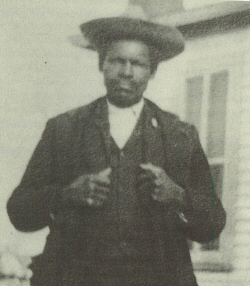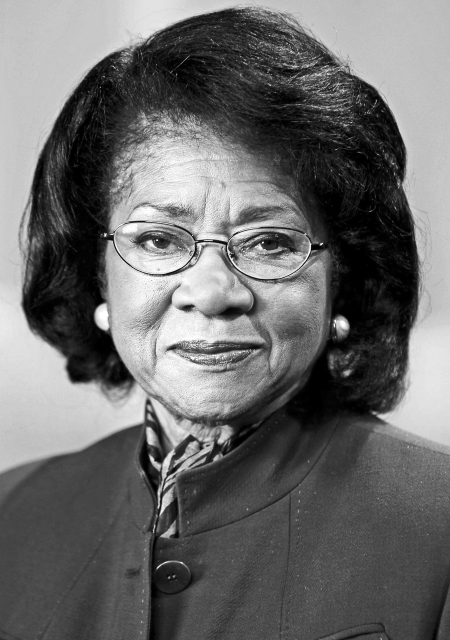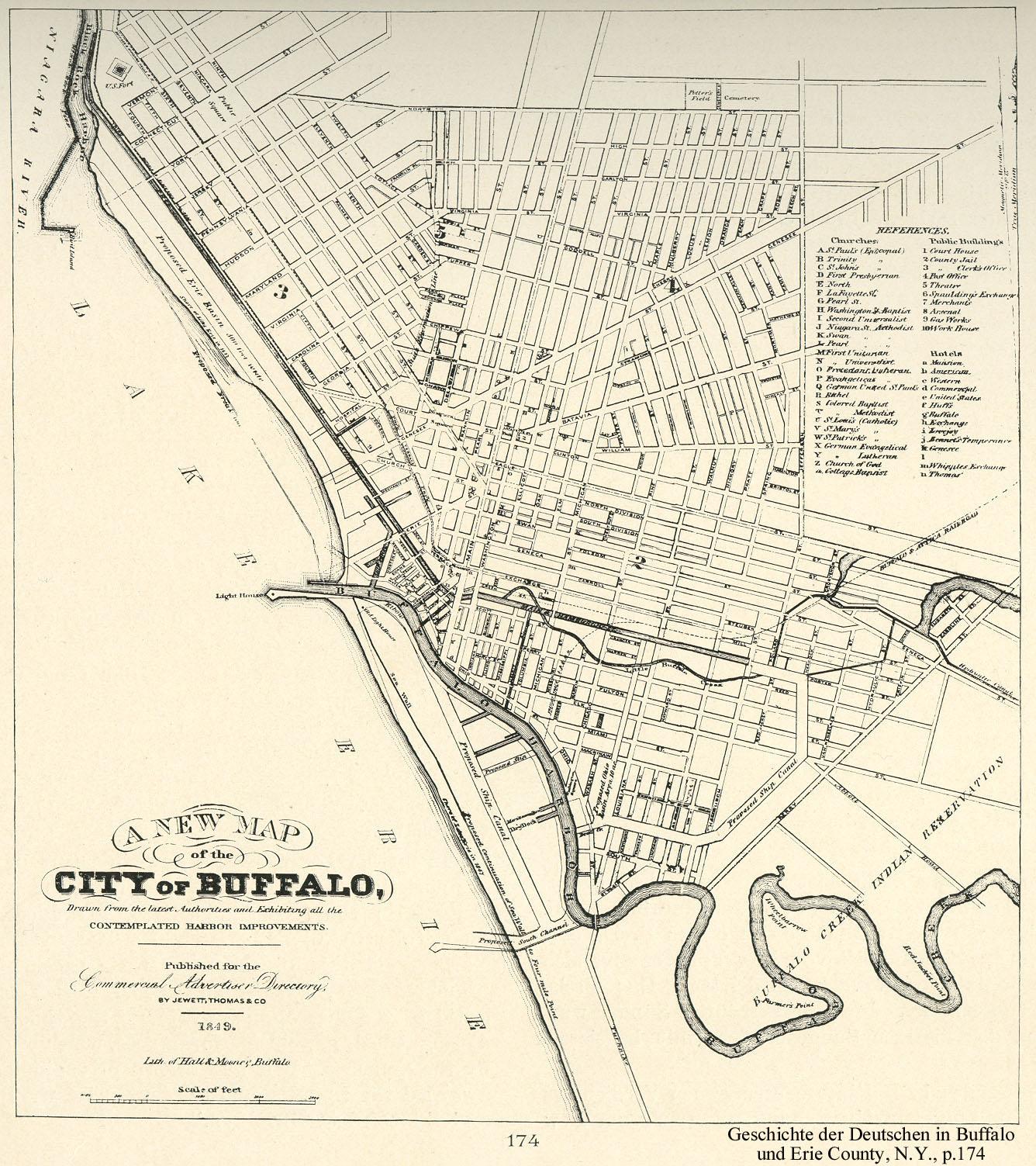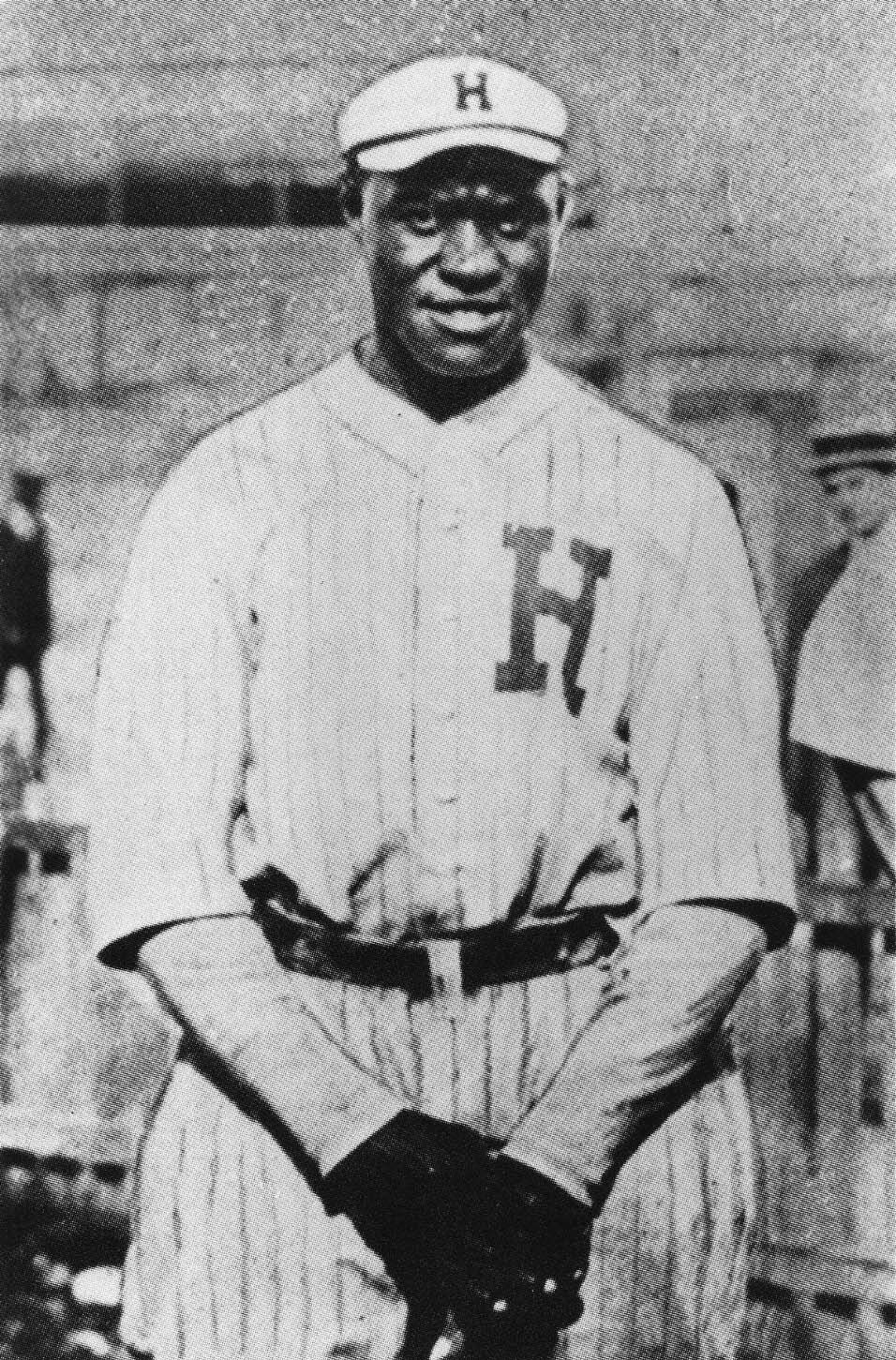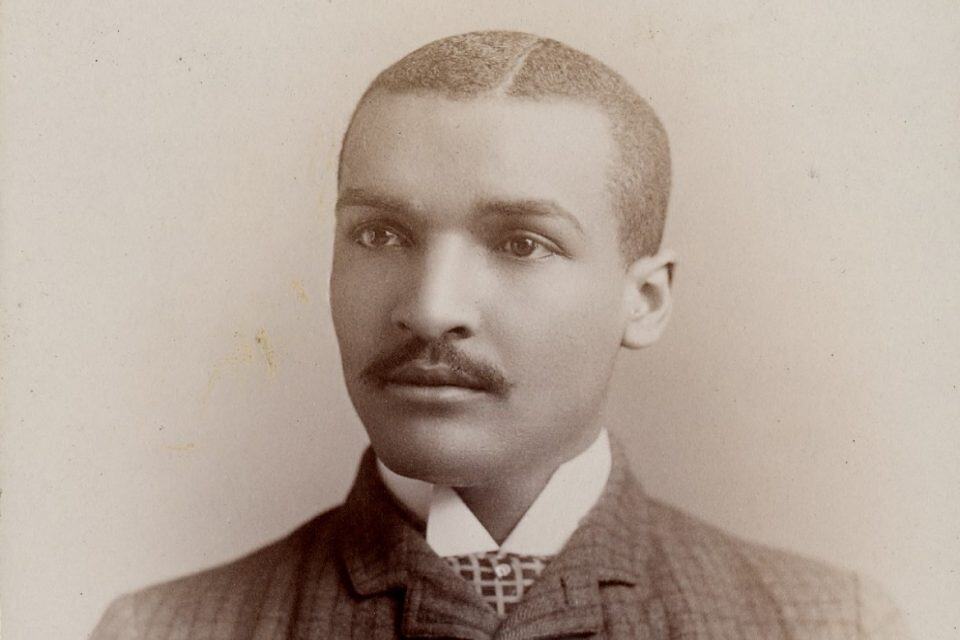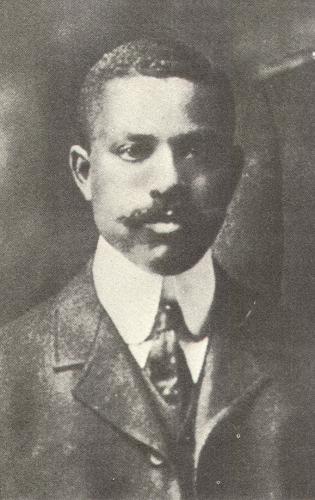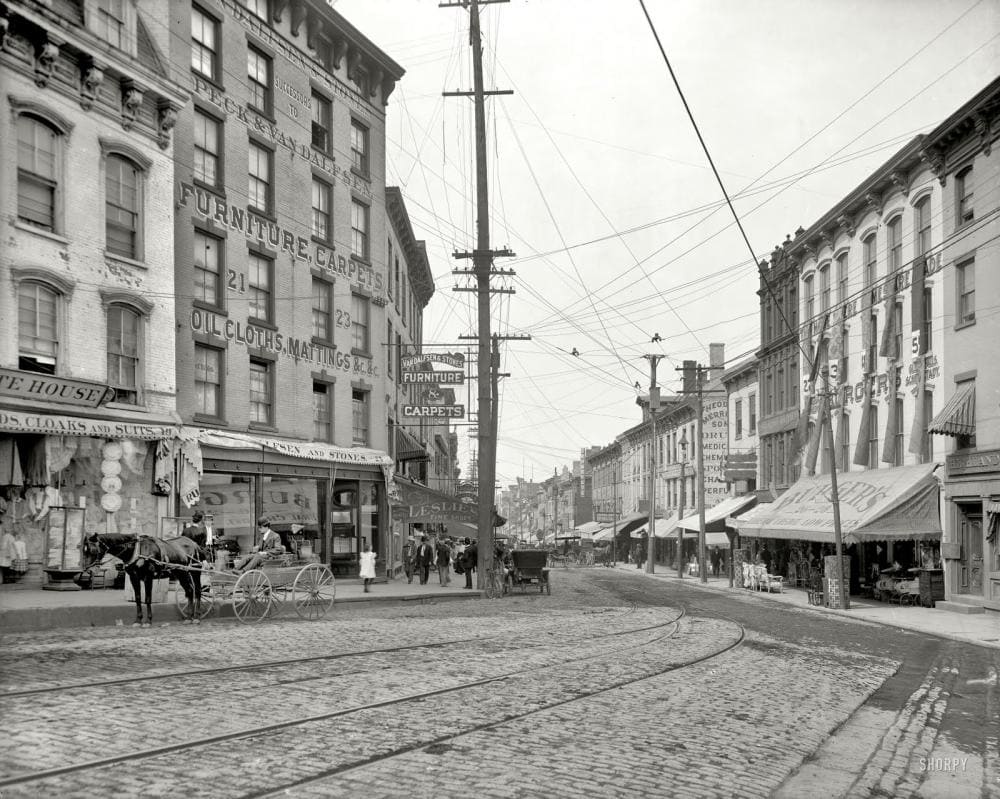Mississippi State Penitentiary, or Parchman Prison, has long influenced the Mississippi cultural landscape, functioning as a literary setting in many iconic works. Stretching from the early 1900s to the contemporary era, Parchman has loomed over Mississippi culture. The prison has been an important motif in iconic works of fiction, from Mary Hamilton’s pioneer biography, Trial of the Earth, to William Faulkner’s The Mansion, and Eudora Welty’s Losing Battles. In the contemporary era, Parchman is a significant location in John Grisham’s The Chamber, and Jesmyn Ward’s Sing Unburied Sing. All of these works have emphasized Parchman’s notoriety as inhumane, violent, and exploitative– a place where punishment is the main purpose. In recent years, through the nonprofit organization, Mississippi Prison Writes, Louis Bourgeois began creative writing and literature classes in the state prison system. In a setting where rehabilitation and education conflict with incarceration realities, the book Unit 29: Writings from Parchman Prison provides a look into the actuality of life for the incarcerated and shows the limited evolution of Parchman Prison through many different perspectives and creative forms. The writer P.B. Jernigan provides below a glimpse into the lives of Parchman’s inmates through their writings.
The Setting:
Unit 29: Writings from Parchman Prison is a collection of essays, poems, and art created by inmates of Mississippi State Penitentiary’s largest unit. It is a compilation created by over 30 detainees over the span of 3 years. Most of the contributors in the book had never created art before. Yet they produced a harrowing and honest reflection of life while incarcerated. Unit 29 provides a rare and gritty portrayal of prison realism, with potent commentary on their experiences in Parchman Prison. Each writer in this book has a distinct narrative voice. The writing covers a variety of topics such as violence, neglect, trauma, suicide and survival. The majority of the book, however, contains the incarcerated students’ words as they describe their experiences and encounters while in Parchman.
Mississippi State Penitentiary, also known as Parchman Farm, is 20,000 acres with deep roots in American slavery. Originally a plantation, in the early 1900s Parchman got its beginnings functioning as a prison farm utilizing inmates for hard labor. Today, it consists of mostly open fields, a few trees, ponds and seven different housing units. The prison is located in the Mississippi delta region of Sunflower County on a desolate stretch of Highway 49. Unit 29, is the largest unit of Parchman Farm. It is surrounded by high razor-wired chain-link fences and four guard towers. Unit 29 is ten tiered zones centered around a caged-in prison yard. The cells are dirty and there is a constant smell of marijuana, tobacco, and a general air of smoke. It is never silent, with the TV’s bolted to a center pillar always blaring and inmates shouting at each other from their cells.
There is ineffectual medical and mental health care. One prisoner wrote of a random fire that filled the building with thick smoke. After the fire was put out, no one received any medical care for smoke inhalation. Another wrote that in 2004, the prisoners were forced outside in the rain and unable to move from their position without being beaten due to a prisoner being murdered. An elderly man died that day from being beaten. Since there is one mental health doctor for 800 inmates, it is impossible to properly assist them.
Since the inmates spend nearly 24/7 in their 6×6 cells, boredom runs rampant throughout Parchman. To quell this, some turn to prayer, pacing, drawing, writing, reading, and attending classes. Others turn to drugs. Alcohol, crystal meth, marijuana, and designer drugs like spice and bath salts are almost always readily available. Some came to Parchman which was the reason for their incarceration. Some become addicts while in Parchman, seeking out drugs to cope with their environment. For those with addiction, there are little to no opportunities for recovery. Other contraband available to inmates are cell phones used to contact their families and subdue the boredom. One inmate wrote of believing cell phones have changed Parchman for the better, as they give the inmates a motivation to stay out of trouble.
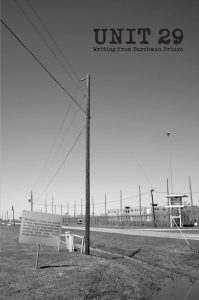
Unit 29, Front Book Cover (Vox Press)
Some wrote about their time in solitary confinement, commonly known as “the hole.” Solitary confinement is meant for discipline and to break people down. Most days are spent entirely in a cell, with three days available to go to the yard. Many convicts in long-term segregation have digestive problems due to the food, dehydration, and lack of physical activity. The food is in small portions and cold. Most convicts lose considerable amounts of weight as well. Excess and long-term solitary confinement is extremely damaging to the body and mind, which is reflected in some of the writing in the book. What follows are the words of a select group of Parchman inmates as they describe the conditions they face.
A scar is an interesting thing. Some look cool. Some look ugly…My deepest psychological scar occurred February 15, 2018, when a jury of my peers sentenced me to Death by Lethal Injection. “Don’t worry,” my attorney said. “It will be quick and painless.” He got my vote for Sympathizer of the Year… Arriving at Parchman, we were met by a dozen K9 officers, the warden, the assistant warden, a psych doctor who asked if I was suicidal, a nurse who drew eight vials of blood, a social worker whom I never saw again… You would have thought I was Hannibal Lecter… I am shackled hands and feet in a light blue $700 suit. The proverbial deer in the headlights…. Steve Wilbanks
After ten and a half years in solitary confinement, I have finally regained a chance at staying in the general population…The ability to work around the prison, go to the dining hall, etc., all seems so small but for some who have given up on…these privileges, it is a blessing…[The crime that put me in prison] was supposed to be fun for us…the assault of an elderly lady during the break in of her house and stealing her car…with her dying from a single stab wound intended to stop the hollering and commotion, not for a kill that took away our freedom when she died. Not a day goes by I don’t wish I could rewind the hands of time, for the two of us… I pray for her and pray the Lord both forgives me for the stupid choices me and a brother made that day. Anthony Wilson
There is no physical escape from prison unless you jump the fence. But you can escape by your mental state. That’s why I try to do things to occupy my mind as much as I can by watching TV or talking to other people. Its real stressful in this place and it beats you down…I stay depressed. Some days I’ll talk but some days I want to stay in my dark cell and sleep…. I wish at times I could physically be on a beach or in the snow instead of in this cold cell and that gets more depressing every day. So, I let my mind go there as much as I can. That’s my escape. James Kendricks
The prison system is broken and unjust and needs reform. Don’t trust anyone and don’t get into debt. It could cost you your life… The food’s usually cold and portions are often small. “Meals on Wheels” I call it because its delivered on a cart. Segregated inmates aren’t allowed to go the mess house…Ramen is a staple… I am currently mourning the death of a loved one so that’s tough. I’m also Caucasian, middle class, and look out of place here… Derrick Willis
I say that I don’t write poems ‘cause frankly I hate poetry. But now I sit and write. The problem is I don’ have a damn clue what I might say. As I sit here on a bunk made of metal in a building not made of much more, just like an old warehouse, not much more than a tin box. This is where they send you when things go wrong, and you break the law [and] now you’re no longer fit to be a member of the public. One very bad action, a very bad mistake, never been in trouble with the law before in your life, and that’s exactly when they give you a life sentence in prison, forget the key, they won’t need that anymore. They don’t expect you to leave. William McCain
You have to be strong. Don’t be weak to the cycle of emotion. The only respect you will get is the respect you have for yourself. There is no justice for you for the stripes you wear take away [your] worth. You have committed a crime—you are no longer worthy of any justice… A world of violence is expected and condoned for entertainment. [Prison guards] see…that you committed a crime, so you deserve to experience trauma, suffering, starving. They see how food is served barely enough, bugs in it, half done, cold, they don’t care. Eat it or get up and get out. Larry Jenkins
Throughout my years locked up at the Mississippi Department of Corrections, I’ve seen a lot of stuff while at Mississippi’s worst prison, Parchman. During 2020, there were more deaths at Parchman than in the last 20 years. Suicide, murder, lack of medical attention. Whatever the cause you can bet on one thing, Parchman has them all…I’ve lost good friends while locked up…. Talley was killed in Unit 30… He was caught stealing drugs and was beat to death with a saran wrap roll. Its crazy, something as simple as a saran wrap roller can end someone’s life if hit enough times in the wrong spot. Suicide is another major cause of death in prison. Usually, it’s hanging. To have 30 years, life, and life [without parole] where you can’t see the end of the sentence, it causes people to give up… Matthew Moberg
Looking out into the zone, I see a jungle, a gangland, a hostile environment. People yell a lot and behave aggressively. I’ve seen people throw feces, squirt urine, set fire, flood the building and occasionally assault an officer over little things. Usually, its over respect or an unruly gang member. I’m reclusive because of these reasons…. Summertime is the hardest season here. There is no air conditioning and the heat can be unbearable at times. Human life is of no value in [Unit 29]. Most of the employees cooperate with the gangs…This place will change you. I can honestly say it has changed me for the better. I don’t ever want to break the law again. Jacob Neal
Despite these conditions and unfortunate circumstances, some inmates had a hopeful outlook. Many wrote of religion, and how it keeps them alive in a place like Parchman. Leon Johnson, in one essay titled “My Prison Walk,” described a band of inmates named “Full Pardon” that plays in the gymnasium and for multiple other units. In Steve Wilbanks’ essay “Scars,” he wrote of the positives of solitary confinement. Wilbanks describes how being in the hole gives you time to think, learn, grow, and heal. The classes offered in Parchman are helpful as well. Wilbanks took a paralegal certification course, helping him in his attempts to appeal his conviction. Some receive their GEDs and get a graduation ceremony. The effort and dedication it takes for education in prison is difficult, yet it is possible, and it has a much stronger impact than most would realize. This book, Unit 29, is an example in that gives a creative and therapeutic outlet in dire circumstances.
In a place like Parchman, moving forward seems impossible. It is built on adversity which creates and maintains a harsh and violent culture. Yet, many such as Jacob Neal, write of their efforts to better themselves and keep a strong mind. This includes efforts they have taken to forgive themselves. Many of these efforts are based in religion.
Some of the writers in this book have been released, some are still in Unit 29. Many have been transferred, and a few have died over years of compiling this book. The dark portrayals they provide are often mixed with hopeful sentiments. The book, Unit 29, humanizes these imprisoned writers and artists, making it possible to view them not simply as incarceration statistics but as individuals caught up in a complex system that led them to spend part of their lives in Mississippi’s most notorious prison.




